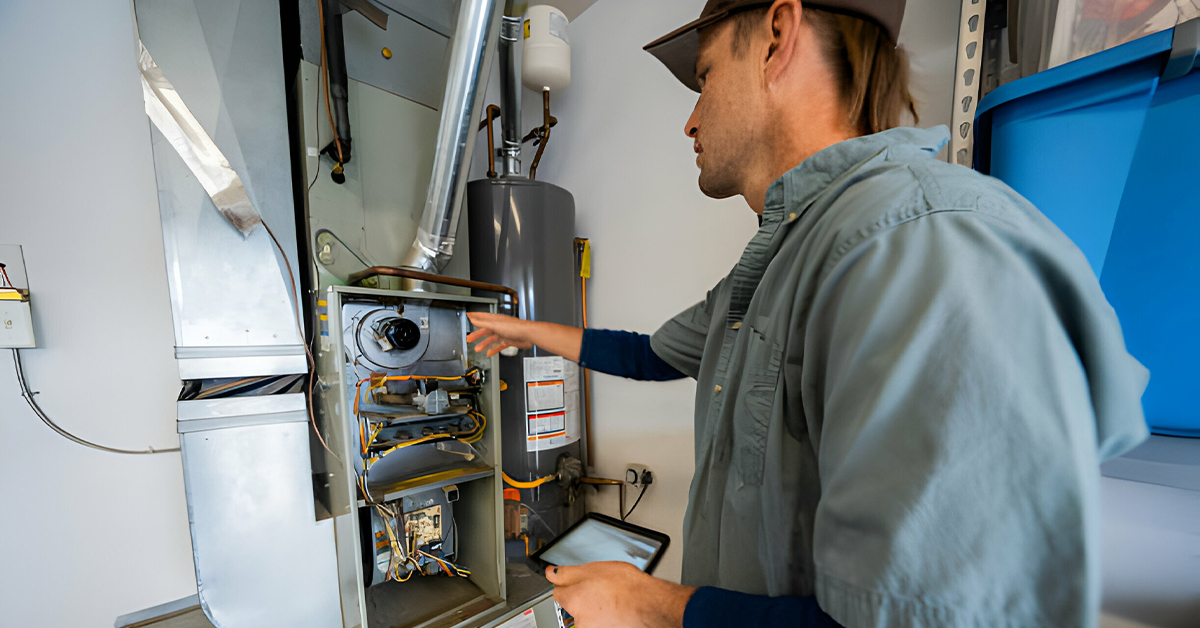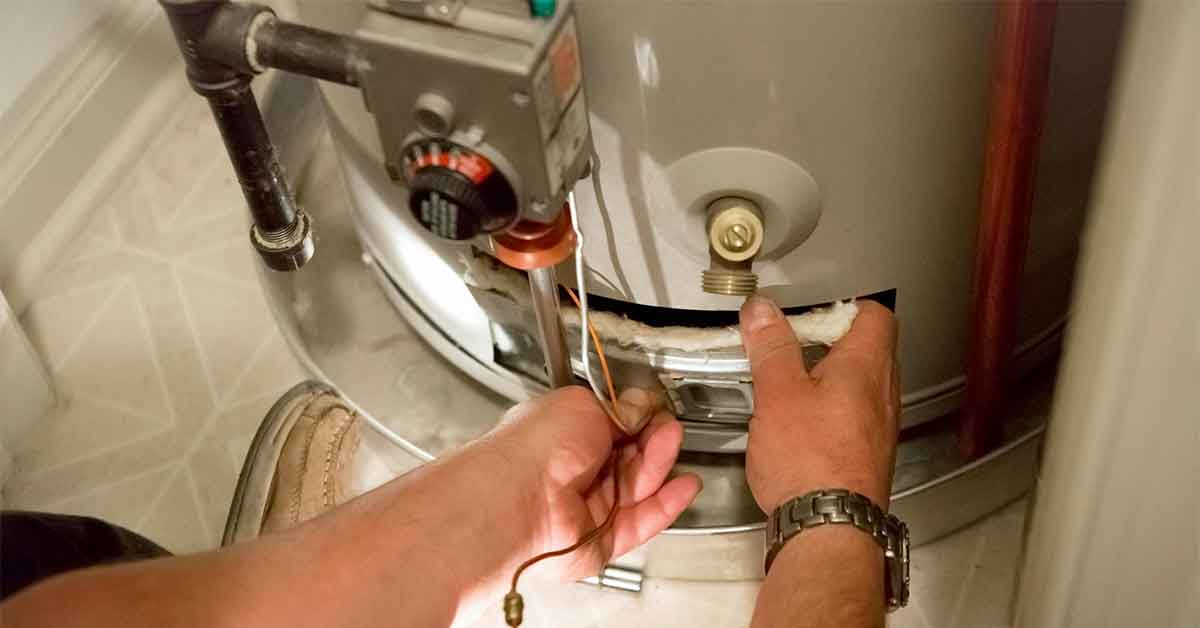Blog


Bubbles to Bursts: Why Your Pipes Burst and How to Prevent It
When an HVAC system encounters a burst, it’s a scenario every homeowner dreads. From the chilling effects of winter causing outside water pipe bursts to the aging process leading to corrosion, the causes of burst pipes are vast and varied. This blog delves deep into the myriad reasons, from hot water pipe strains to unexpected water pump bursts, offering insights into the intricacies of each situation. By understanding these underlying causes, one can better safeguard their system, ensuring longevity and uninterrupted service.
The Culprit Behind Pipe Bursts: What Causes Them?
Freezing Conditions and Outside Water Pipe Bursts:
Winter’s icy grip can cause water in exposed pipes to freeze and expand, leading to potential bursts.
- The Cold Hard Facts: Winter brings a host of challenges, with freezing temperatures leading the charge. Especially in regions that experience severe winter, pipes are under constant threat.
- The Process of Freezing: As outdoor temperatures plummet, the water trapped in pipes starts to crystallize. The formation of ice increases the volume of water, putting immense pressure on the pipe walls.
- Potential Damage: Should the pipe fail to handle the internal stress, it can lead to a catastrophic burst. The resultant water spillage, especially from an outside pipe, can lead to significant property damage, further compounded if it remains undetected.
Corrosion and Time:
As pipes age, internal corrosion weakens them, heightening the risk of unexpected ruptures.
- Natural Degradation: Just like any other material, pipes aren’t invincible. Years of water flow can result in corrosion, especially in pipes made of metals susceptible to rust.
- Weakness Emerges: As corrosion takes hold, it can thin out the pipe walls. This reduction in structural integrity means that the pipe may no longer be able to withstand the usual pressures, making it more prone to bursting.
- Visibility: Often, this corrosion starts from the inside, making it hard to detect without proper inspection.
High Water Pressure:
Excessive water pressure strains pipes, making them vulnerable to sudden and damaging breaks.
- Not Always a Blessing: A powerful stream of water in a shower or faucet may be refreshing, but it’s a clear indicator that the water pressure might be too high for your pipes to handle safely.
- System Overload: Continuous high-pressure stresses the pipe walls. Over time, this strain can lead to micro-fractures or even significant bursts, endangering the entire HVAC and plumbing system.
- Telltale Signs: Frequently banging pipes, often termed “water hammer”, can be a sign of excessive water pressure.
Moving and Shifting:
Natural ground movements can displace pipes, inducing stress and potential fractures.
- The Ground Beneath: Natural occurrences like earthquakes, or even man-made activities like construction, can lead to the earth around your home shifting.
- Stress Points: These shifts can strain pipes, causing them to move from their original positions. Such movements can result in pipes bending, leading to kinks, or even snapping.
- Regular Checks: Homeowners need to be aware of any significant ground movements and should schedule inspections afterward to ensure pipe integrity.
The Hot Water Pipe Burst
Continuous temperature fluctuations in hot water pipes cause wear and tear, increasing burst risks.
- Thermal Dynamics: Hot water pipes are subject to constant temperature changes. As hot water flows, the pipe expands, and once the flow stops, it contracts.
- Material Fatigue: Over time, this constant expansion and contraction can weaken the material, making it susceptible to bursts, especially at weak points or joints.
- Insulation is Key: Properly insulating these pipes can reduce the temperature flux and prolong their lifespan.
Water Pump Bursts
- The core of Circulation: The water pump is pivotal in ensuring water circulation in HVAC systems, especially those with radiators or hydronic heating.
- Operational Strains: With continuous operation, parts within the pump can wear down. Seals might degrade, impellers could get damaged, or motors might overheat.
- Maintenance is Crucial: Regular check-ups can help in identifying early signs of wear, ensuring timely replacements or repairs, and averting potential bursts.
Guarding Your HVAC System against Burst Pipes
- Routine Checks: Regular inspections aren’t just about spotting leaks. They’re about assessing pipe health, checking for corrosion, ensuring proper insulation, and confirming that supports and brackets are intact.
- Be Winter Ready: As winter approaches, take proactive steps. Apart from insulation, ensure outdoor faucets are drained and indoor heating is adequate to prevent pipe freezing.
- Pressure Management: Regularly check your home’s water pressure. If it’s on the higher side, pressure-reducing valves can help maintain a consistent, safe range.
Conclusion:
Pipes serve as the intricate network keeping our homes functional, but when they face issues like bursts, the consequences can be daunting. Whether it’s the unforgiving chill of winter, the silent decay of corrosion, or the unexpected shifts in the ground, the reasons for these disruptions are as diverse as they are alarming. However, armed with knowledge and a proactive approach—from routine checks to expert interventions—we can ensure the seamless operation of our systems and enjoy the peace of mind that comes with a well-maintained home.




